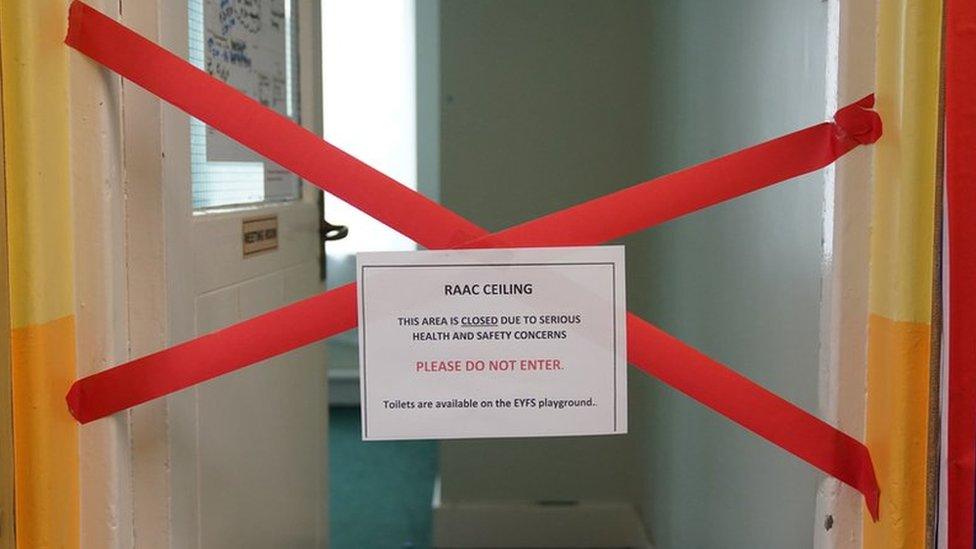Keegan sorry school RAAC concrete closures came at 'worst time'
- Published
- comments
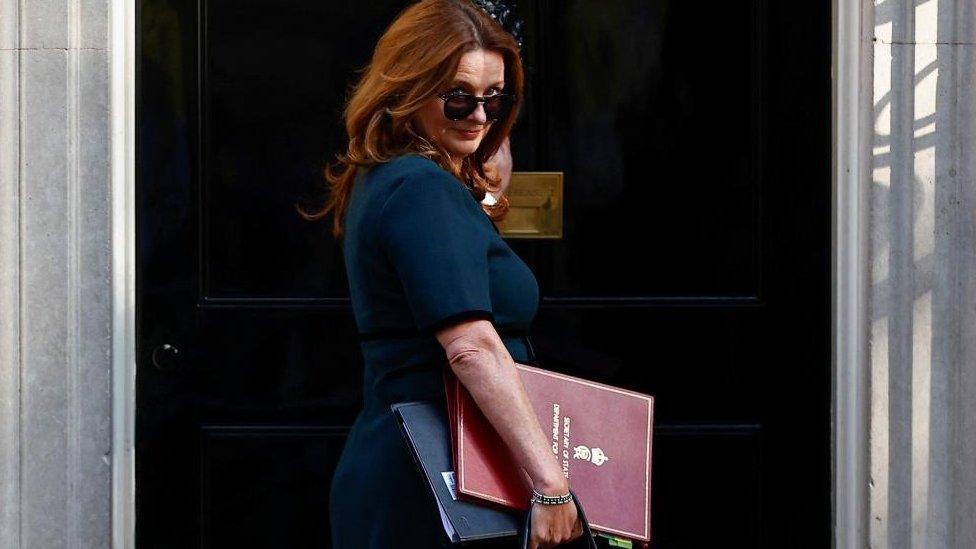
Education Secretary Gillian Keegan, arriving to Tuesday's cabinet meeting, urged schools to respond to a government survey on concrete
The education secretary has said she is sorry the call to close some schools over unsafe concrete came at the "worst time" just before the start of term.
Gillian Keegan, speaking on BBC Radio 2, also told 5% of schools who had not replied to a survey about RAAC concrete to "get off their backsides".
More than 100 schools in England have closed or partially closed and some are struggling to secure building surveys.
One company said temporary classrooms could take up to six months to build.
Schools are returning from their summer break this week, but the risk posed by collapse-prone reinforced autoclaved aerated concrete (RAAC) has resulted in full or partial closures and some pupils are learning online.
Speaking to Jeremy Vine on BBC Radio 2, Ms Keegan said she had to take action after three incidents during the summer involving RAAC - one in a school outside England, one in England and at a commercial property.
"I had to make a decision right at the end of August which was the worst time," she said.
"I am very sorry about the timings but I 100% think it was the right decision."
A list of schools that have been identified as having the potentially dangerous concrete will be published "before Friday", schools minister Nick Gibb said.
Ms Keegan said she had two lists - the initial list of schools asked to close buildings last week, and another of schools that are suspected to contain RAAC and are going to be surveyed in the next fortnight.
She added there could be hundreds of schools affected.
The education secretary said the government was waiting on questionnaires sent to schools to see how prevalent RAAC concrete was.
"There's RAAC all over the world ... in March 2020 we'd asked all the responsible bodies to survey for RAAC - we went to 20,000 schools and the vast majority don't have RAAC."
Criticising schools in England that had not yet responded to the survey, she said: "Hopefully all this publicity will make them get off their backsides".
However, Paul Whiteman, general secretary of the NAHT school leaders' union, said "any attempt to start shifting the blame onto individual schools will be seen by parents and public for what it is: a desperate attempt by government to deflect from its own significant failings".
Daniel Kebede, general secretary of the National Education Union (NEU), said it was "outrageous" of Ms Keegan to "lay any responsibility... at the door of schools", saying the Department for Education (DfE) had been "dragging its heels over many years on this issue".
Earlier, Hina Robinson, chair of governors and parent of a child at Wyburns primary school in Rayleigh, Essex, told the BBC that the DfE had provided some phone numbers of engineers but none were available for remedial work.
"The focus is on 'how can we get children back into learning in a building of some sort'," Ms Robinson said, adding some children will return to online learning until a space can be found.
She said online learning was "very difficult for the children," but even those who were able to be on site face disruption as "classrooms are set up in places that aren't meant to be classrooms".

Schools concrete crisis

Joshua Wedgewood, a student at St Leonards Catholic School in County Durham, is learning online as his school is temporarily closed because of RAAC concrete concerns.
He told BBC Radio 4's Today programme it was like being back in the Covid pandemic, saying: "On a screen it's just not real life, it's isolating, it's being stuck inside your home. It's not nice."
James Saunders is a head teacher at Honywood School, Essex, where about half of the rooms are unusable and some students are learning online.
He told BBC Radio 5 Live that he has explored the option of setting up marquees outside the school as "they're quicker to set up than a mobile classroom".
David Wernick, boss of the Wernick Group - which provides portable buildings - told the BBC the situation was "akin to what happened at the beginning of Covid", when hundreds of test centres were set up around the UK.
Kieran Webberley, of Wernick, estimated a "simple" temporary building would take "days, a couple of weeks maximum" to construct while a more "bespoke modular" two-storey temporary building that could house 10 rooms would take anywhere between two to six months depending on its complexity and could cost up to £2,000 per square metre.
Wernick Group subsequently said this figure was incorrect, but declined to provide a different number.
Brian Berry, chief executive at the Federation of Master Builders, said: "Local builders tend to have full schedules months ahead, so may struggle to cater for the scale of the issue facing schools, like putting up portable classrooms at speed, to ensure children don't miss lessons."
'World-leading response'
Meanwhile safety consultant Damini Sharma said RAAC could be present in more buildings, including social housing, courts and hospitals but was potentially difficult to detect because it was often covered.
She told BBC Breakfast that RAAC was was a very lightweight, porous material that was used predominantly from the 50s to the 80s" and "not really suitable for permanent structures".
The information about the lifespan of the material was not available when it was first used, she said.
The head of the spending watchdog, the National Audit Office, accused the government of taking a "sticking plaster approach" to carrying out essential maintenance on school buildings.
Gareth Davies said the "unflashy" job of repairs has been neglected.
But schools minister Mr Gibb said the response to the crisis had been "world-leading".
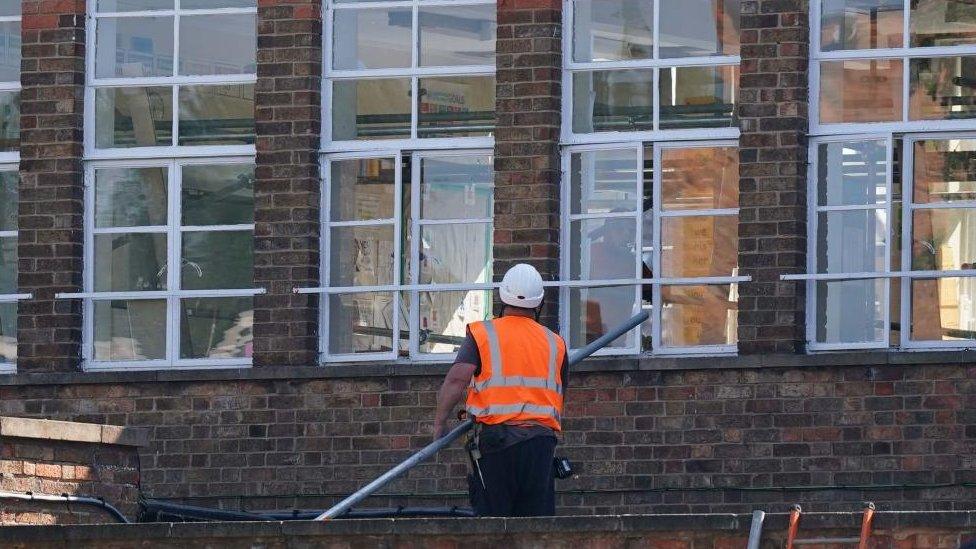
Mr Gibb added that his department bid for 200 school refurbishments a year in 2021 - but the Treasury only funded 50.
"The Treasury has to take into account all the other bids from across Whitehall," he said.
He said that since Rishi Sunak became prime minister, an additional £4bn had been allocated in revenue funding for schools in England, which meant £59.6bn will be in the budget next year - a "record amount".
Labour leader Sir Keir Starmer said it was "unforgivable" that children were missing the start of term because of potentially unsafe buildings.
"Children are not at school today because of the action the government has failed to take in relation to schools," he said.
On Monday, Ms Keegan apologised after being caught swearing on mic as she expressed frustration at a lack of gratitude for the handling of the school building crisis in England.
She made the comments just after finishing an interview with ITV news while the camera was still filming.
A No 10 source told the BBC those comments by Ms Keegan were "wrong", but in a follow-up interview Ms Keegan apologised for her "choice language".
Update 8 September: This article was updated after Wernick Group said the figure they gave as the estimated cost of a "bespoke modular" two-storey temporary building was incorrect.
Related topics
- Published13 February 2024
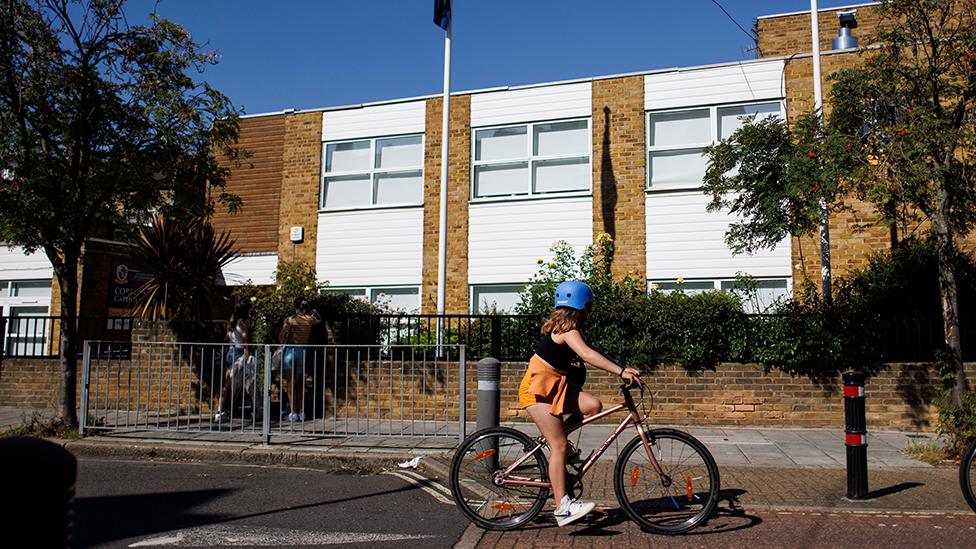
- Published19 September 2023
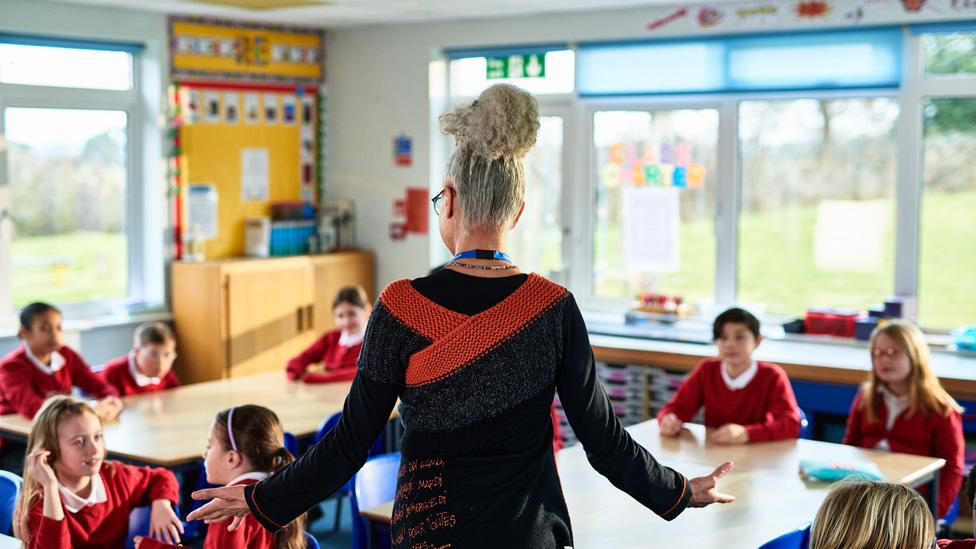
- Published25 September 2023
